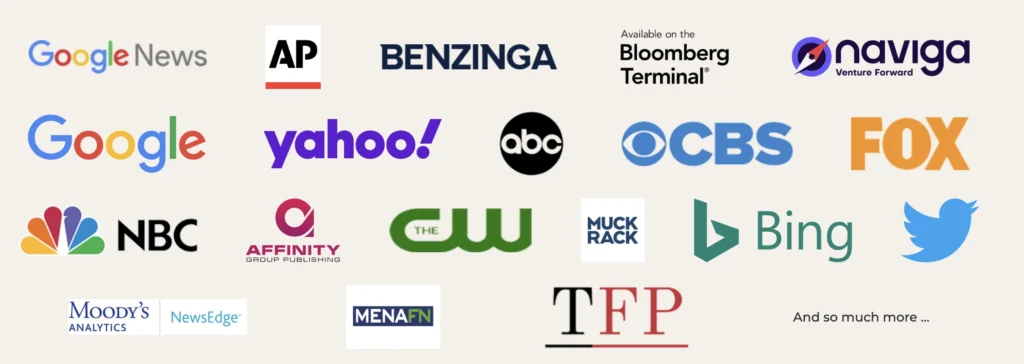Insights On Fintech Innovation, And The Importance Of Inclusivity In The Financial Sector
Ryan Penley discusses his journey to sobriety, the pivotal moments that shaped him, and offers actionableadvice for those seeking recovery.
The ever-evolving landscape of finance and technology is profoundly shaped by the insights of Helene Panzarino, Chief Ecosystem Evangelist at Skillwork. A leading voice in banking innovation, Helene combines her extensive expertise in fintech with a deep commitment to education and community empowerment. Her work addresses the pressing challenges facing the global financial industry while championing the transformative potential of technology to create inclusive solutions for underserved populations. Helene’s dedication to fostering diversity and innovation is evident in her initiatives, which aim to bridge the gap between traditional financial systems and the emerging needs of a rapidly changing world.
In this insightful interview, Helene shares her journey, the inspiration behind her book “Reinventing Banking & Finance,” and her vision for the future of fintech. She discusses the challenges she faced in developing educational programs that equip the next generation of financial professionals and offers valuable advice for entrepreneurs looking to navigate the complexities of the fintech landscape. Helene’s unique perspective on the intersection of health and wealth, along with her dedication to creating sustainable solutions, positions her as a pivotal figure in shaping the future of finance. Join us as we delve into her thoughts on innovation, regulation, and the critical role of collaboration in driving meaningful change.
What inspired you to write “Reinventing Banking & Finance,” and what key insights do you hope readers will gain from it?
Founders asking me who they should meet when launching abroad. They recognised the depth of my research into financial global hubs and my knowledge of the cultural nuances. The second half of the book was designed especially for them. The first part of the book gives the reader a historical perspective to financial services which starts hundreds of years ago in Genoa and brings the reader to the present day, exploring business models, technologies, opportunities and missed opportunities.
Essentially, it is like a Fodor’s guide to fintech.
Can you share some of the challenges you faced while creating the Fintech Professional Education Programmes for LIBF, and how you overcame them?
LIBF is 140 years old. Although receptive, taking a centuries old institution from analogue to digital was a challenge. I crafted the flagship course, The Certificate in Fintech Practitioner, where we could give our students something they could not get anywhere else under a satellite centre. Students met founders and alumni working on regulation, wealth creation, digital banking, and payments and then met the actual industry. It was a mini fintech startup crash course. Staying true to our commitment to diversity, we provided scholarships for women who could prove that it would benefit them and demonstrate a clear plan to share their learnings with other women within their own communities.
How do you see the role of fintech evolving in the next five years, especially in emerging markets?
One thing the industry did expect was the volume of M&As have been taking place – a direct result of business models being stressed-test or ‘me too’ products. We will continue to see more consolidation in the market.
Mobile wallets and accessing finance from smaller financial institutions or non-FIs continue to grow their presence to service unbanked and marginalised communities, notably, but not exclusively, in Africa and North America. Financial vulnerability has also continued to grow. Areas such as fraud and financial elder abuse have been largely overlooked within fintech. An urgent look at the wealth and health areas in terms of management of finances for the whole of our lives is well overdue.
Of course, AI’s eventual penetration into every single industry will be transformative, similar to the way mobiles and computers impacted us.
What are some of the most significant ‘firsts’ in your career, and how have they shaped your approach to innovation in the financial sector?
I see my superpower as making a successful solution from the essence of an idea – ‘two lines on a sheet of paper’ if you will. I did this at Rainmaking, Innovate Finance and UCL. People, especially in financial services, are often unable to articulate their challenges clearly. This has shaped my approach by digging into the ‘why’ and ‘for who’.
How does your work with Skillwork align with your vision for fintech and medtech innovation?
Health and wealth go hand-in-hand, and many consumers are excluded from accessing finance and care, so are turning to smaller FIs who want to help, but don’t have the IT budget of a global bank to get systems up to speed.
We’re living longer, but not necessarily healthier lives, putting a strain on systems. My vision is to create solutions that solve problems throughout the entirety of someone’s life from both a private and public perspective.
Ali Youssef and Jan Gasiewski, co-founders at Skillwork, have the passion, network and experience within these arenas. What continues to impress me about them is that they keep an open mind, are confident and calm in their approach and are prepared to ‘look around the corner’ with me. They don’t buy into the FOMO that the industry loves to perpetuate.
Can you discuss your experience as a board member and advisor for fintech initiatives like RegTech Kalgera and the UK Digital bank Pennyworth?
Every role is different, yet in all of them I am a sounding board, an industry connector and one of the people who has one eye on the future and a longer term strategic view. I’m also the person who can be blunt, who can be a motivator and who can get stuck if, and when, needed.
What advice would you give to entrepreneurs looking to bring a fintech or medtech product to market?
Don’t just look to be a ‘me too’ business. Do your research – both primary and secondary – as to where there is a genuine need, create a sustainable business model, a robust tech stack, a strong partner network, don’t ignore regulations and learn how to sell.
How do you balance the need for innovation with regulatory compliance in the rapidly changing fintech landscape?
Regulation should drive innovation. I’ve seen how regulation has had to be retrofitted, but now that we all understand the process (e.g. sandboxes), there is a good relationship between regulation and innovation. What’s clear is that old rules don’t always work with new technologies e.g. cryptocurrencies. A consultative dialogue between regulators and the industry is essential before rules are set in stone.
What trends do you see emerging in the fintech industry, and how should companies prepare to adapt to them?
The intersection of health and wealth and how fintech can be used to create, save, protect and share finances at all stages of our lives, but especially as we prepare for the greatest wealth transition of a generation.
How do you foster a culture of innovation and collaboration within diverse teams, both at Skillwork and in your other professional roles?
Skillwork’s built an environment where building with purpose and clarity underpins everything we do. We never lose sight of the end-customer and recognise the equal importance of staying in the ‘here and now’ whilst reading the signals of what is to come.
We understand the niche communities we are trying to help prosper because we are the people within these communities. It’s why we’ve partnered on projects that are as wide as serving North Americans with payments for dental issues, to niche projects that support financing for the Muslim community. Skillwork recognises that we can only do what we do if we aren’t just saying that culture matters, but that we actually act on being a diverse and innovative team. One cannot work without the other.
EDITOR’S HIGHLIGHTS
Empowering Businesses Globally
“Being featured in Entrepreneur Prime means gaining visibility not just in print edition, but across the entire media spectrum in the US, UK, Europe and beyond”

EDITOR’S HIGHLIGHTS
The Power of Media for Entrepreneurs and Businesses
Building Success Through Visibility
Media is a powerful tool to build relationships, boost visibility, influence decisions, and create lasting impressions for success and growth.































